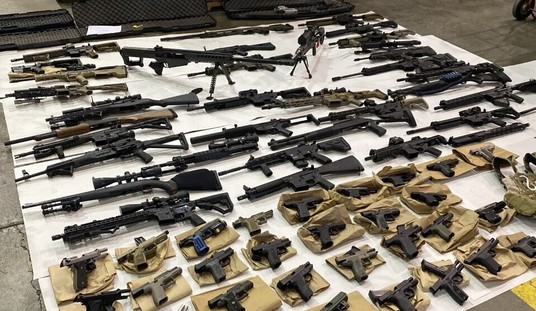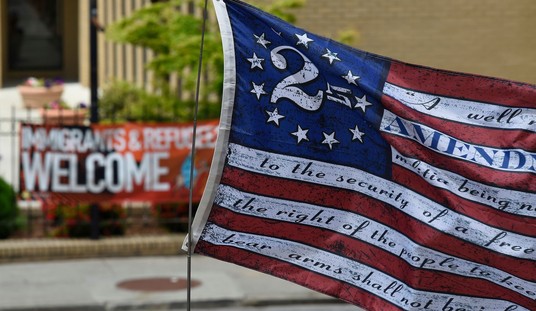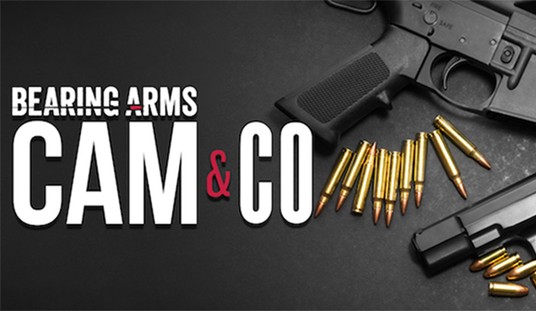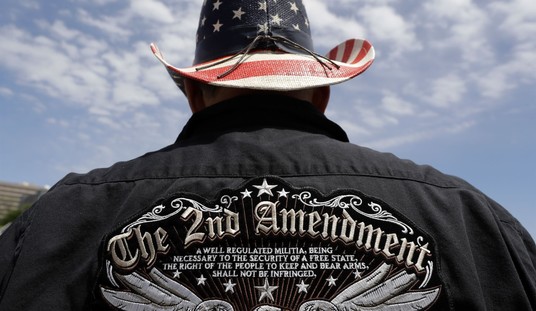
Gun Owners of America has decided to challenge the legality of the Hughes Amendment to the Firearms Owners Protection Act of 1986 (FOPA) in a legal brief that could have interesting implications:
On November 2, Gun Owners of America (and its foundation) filed in the U.S. Court of Appeals for the Fifth Circuit an amicus brief in support of a challenge to the federal machine gun ban, ironically passed as part of the 1986 Firearm Owners Protection Act.
Gun Owners not only argues that possession of machine guns by Americans is compatible with the Second Amendment, we argue that Supreme Court opinions have bolstered this view. Our brief argues that the Second Amendment is not about hunting or target shooting, but about self-defense against individuals and/or the state.
Finally, the Gun Owners’ brief ridicules those who say that fully-automatic machine guns are far too terrifying and powerful for ordinary people to own, and we take the ATF to task for its bait-n-switch tactics.
Under the Gun Control Act (“GCA”), “persons” are generally prohibited from possessing machine guns. A “person” is defined to include entities such as a corporation and partnership — but the definition does not include a trust. Moreover, in 2014, ATF took the position that “unincorporated trusts are not ‘persons’ under the GCA.”
Based on that understanding that trusts are not persons, the Jay Aubrey Isaac Hollis Revocable Living Trust applied to the ATF for approval to manufacture and register an M-16 machine gun. When ATF eventually revoked the application, the Trust sued, but the U.S. District Court for the Northern District of Texas dismissed the case.
The district court decided that machine guns do not even qualify as “arms” protected by the Second Amendment. The district court relied upon cobbled together fragments and dicta from the Supreme Court’s 2008 opinion in Heller and its 1939 opinion in Miller, which the district court claimed “foreclosed” the argument that machine guns are “arms.”
The GOA brief argued that not only did Heller and Miller not foreclose the argument, but rather they support it. Indeed, Heller explicitly stated that “the Second Amendment extends, prima facie, to all instruments that constitute bearable arms.” And Miller stated that weapons which are “part of the ordinary military equipment” (like the M-16) are the sorts protected by the Second Amendment.
The brief (PDF) asserts that the Northern Texas District Court royally screwed up the lessons of both Miller and Heller, and cherry-picked what they wanted out of each precedent to arrive at their conclusion.
As a practical constitutional matter for laymen, it is obvious that machine guns are clearly the sort of arms that a “well-regulated” militia would find incredibly useful in both offensive and defensive operations. Their practical utility to a modern militia is unquestionable from their current use in that role around the world, and over the past century.
-HOWEVER-
It is blindingly obvious from their prior performance from Dred Scott until now that the federal courts and the U.S. Supreme Court are fallible. They have made numerous decisions in the past that are clearly immoral, unconstitutional, politically or personally biased, and/or are simply inept.
The Justices are men and women, not demi-gods, and they do make mistakes.
Both Miller and Heller were decided by Supreme Court Justices from urban areas utterly unfamiliar with tactical firearms, and unwilling to consider their obvious utility in militia service. It should be quite obvious to the court that the decisions in Miller and Heller were arrived at out of a lack of knowledge on the part of the court, both tactical and historical in nature.
In a just world, where justice was not blind but was instead well-informed, the utterly arbitrary nature of the Hughes Amendment should obviously overturned. Hughes argues that a machine gun prior to an utterly arbitrary date is acceptable, but one manufactured by the same building, on the same tooling, to the same specifications, is not acceptable if manufactured any day past an utterly arbitrary date. It’s self-evidently absurd and unconstitutional.
Unfortunately, I don’t think that GOA’s brief makes that argument, and instead gets into a cherry-picking battle with the U.S. District Court for the Northern District of Texas on who can best bend Miller and Heller to their wills.
Miller was a horribly-decided case, and Heller a very imperfectly-decided on due to rampant ignorance in a court over-awed by a since of self-importance.
Deciding the legality of Hughes really should not go beyond a direct and simple reading of the Second Amendment itself:
“A well regulated Militia, being necessary to the security of a free State, the right of the people to keep and bear Arms, shall not be infringed.”
As machine guns are clearly firearms, and have a clear and well-defined role in use for militia/military service to secure the free state, they should be among the most protected classes of firearms within the United States.
Hughes should be challenged and struck down upon that critical point alone.
It is my opinion that GOA made a tactical mistake in how they attempted to bring an end to the blatantly unconstitutional Hughes Amendment, and fear that they have doomed themselves to failure.
It’s a damned shame that they’ve likely squandered their opportunity with a flanking skirmish at a time where a direct assault was warranted.








Join the conversation as a VIP Member